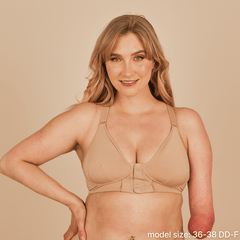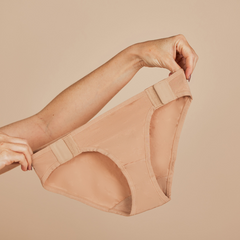
Recovery from rotator cuff surgery doesn’t happen in one clean arc. It often feels more like a series of quiet recalibrations. From reaching for a glass to getting dressed in the morning, even the smallest routines demand new forms of patience, creativity, and support.
But there are ways to ease that path, some grounded in practical tools, others in mindset, and many shaped by the lived wisdom of those who’ve already walked this road.
1. Set Up Your Space Before Surgery
The first few days after surgery are not the time to be reorganizing your life. Think ahead. Arrange your most-used items, medications, water, snacks, remotes, at waist height or below so you don’t have to reach or lift.
Consider switching out heavy mugs or pans for lighter alternatives, and prep freezer meals or stock up on easy-to-prepare foods. Every small effort you make before surgery can help reduce pain and discomfort during recovery.
2. Accept Help Like It’s a Skillset
Whether it’s a friend dropping off groceries or someone helping you tie your shoes, accepting help can be uncomfortable, but essential.
You’ll likely find that those around you want to help but don’t know how. Be specific, even if it feels strange at first. “Can you refill this water bottle?” is more useful than “I need help.”
3. Dress for Recovery, Not Just Comfort
After rotator cuff surgery, getting dressed becomes one of the most frustrating parts of the day. Overhead motion, twisting, or fiddling with back closures can set you back, literally and emotionally. This is where adaptive design makes a real difference.
The Easy-On Mobility Bra was designed for moments like this. It features a patented Velcro front-closure system and a clever one-handed method that lets you secure it without lifting your arm.
Everything adjusts from the front, so you don’t have to reach behind or over your head. Whether you’re in a sling or moving slowly, it offers an easier way on that protects your shoulder while keeping you supported.
If you wear a larger cup size and need a bit more structure, the Goddess Lift Mobility Bra (DD–H cups) offers the same safe, shoulder-friendly features, with the addition of a magnetic front clip for more hold and stability.

4. Ice Is Not Optional
Even if it feels like you’re just tolerating discomfort, inflammation can creep up and set your recovery back. Use ice packs consistently for the first couple of weeks, about 20 minutes at a time, several times a day.
Keep a few in rotation so you’re not waiting for one to refreeze when you need it most. Consider a wraparound ice pack system if holding something in place is a challenge.
5. Move, But on Schedule
It’s tempting to test your limits when you start feeling better, but early progress isn’t a green light to push harder. Your physical therapist will likely give you a structured movement plan. Follow it. Not a version of it.
The shoulder joint is complex and delicate, and even movements that feel harmless can lead to setbacks if they’re done too soon.
6. Sleep Will Be Weird
Most people aren’t prepared for how much sleep changes after rotator cuff surgery. Side sleeping is often out of the question, and sleeping upright in a recliner or with a wedge pillow might be your only option for weeks.
Build a setup that supports your posture and keeps your shoulder protected. A body pillow or rolled towel can help you stabilize the arm and reduce the urge to shift around in your sleep.

No one talks enough about the emotional fatigue of depending on others for basic tasks. The key is to focus on the small wins that quietly rebuild your sense of agency. The path back isn’t linear, but it’s yours to walk.



